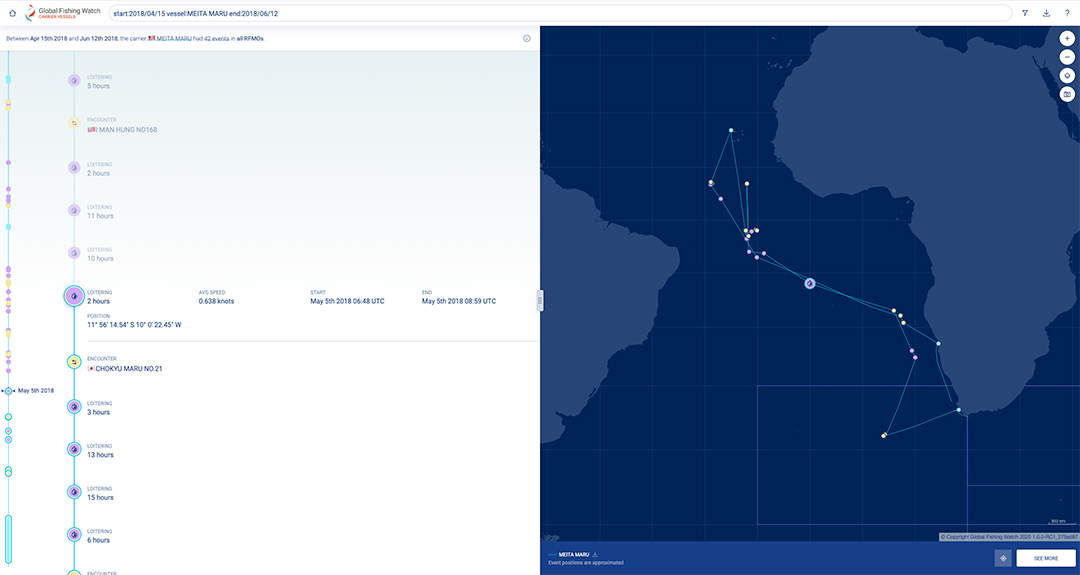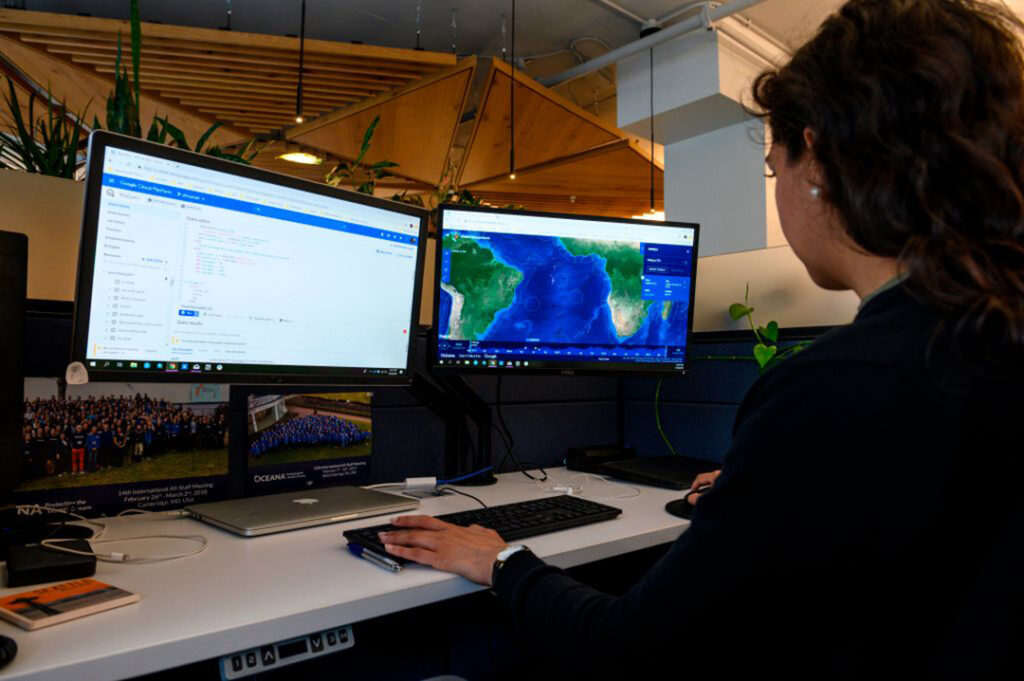ADF STAFF
Benin became the first African nation to commit to publicly share data about fishing vessels in its waters when it partnered with Global Fishing Watch (GFW) in May.
Benin will establish a vessel-monitoring system (VMS) and share its data through GFW’s map. Until Benin’s VMS system is established, the partnership will help track all fishing vessels operating in Beninese waters using an automatic identification system (AIS), and in adjacent waters outside Benin’s exclusive economic zone.
“Through our partnership with Global Fishing Watch, we can strengthen our ability to monitor fishing activity, enforce the law and demonstrate our commitment to transparency in support of a blue economy,” Gaston Cossi Dossouhoui, Benin’s minister for agriculture, livestock and fisheries, said in a news release. “We encourage other African states to join us in this initiative to rid our waters of illicit activity.”
The partnership is completely funded through organizations such as Bloomberg Philanthropies, Moore Foundation, OAK Foundation and Oceans 5.

GFW will present the AIS and VMS data through its carrier vessel portal and vessel viewer tools to help Beninese authorities identify and analyze fishing operations in their waters.
“Through the partnership, we will also provide Benin with access to other satellite tracking technology to detect dark targets — vessels that do not publicly broadcast their location or appear in public monitoring systems,” Dame Mboup, Global Fishing Watch’s program manager for West and Central Africa, told ADF in an email. “These include satellite radar imagery (synthetic aperture radar, or SAR) which can detect the presence of large vessels.”
SAR works 24 hours a day and through cloud cover. When vessels use bright lights to help them catch fish, it can be detected with satellite-based light sensors, known as VIIRS.
“As Global Fishing Watch’s partnership with Benin and other African states deepen and expand, and new vessel tracking technology emerges, Benin will benefit from new capabilities to strengthen their maritime monitoring, control and surveillance efforts,” Mboup told ADF.
Illegal, unreported and unregulated (IUU) fishing has been a persistent problem in Benin and other West African nations for decades. IUU fishing accounts for about 40% of all fish caught in the region and threatens the livelihoods of about 7 million people, according to GFW. The region’s fish stocks are in steep decline.
China commands the world’s largest distant-water fishing fleet and is the region’s greatest illegal fishing threat. According to the IUU Fishing Index, China is the world’s worst IUU fishing offender.
The Regional Fisheries Commission for the Gulf of Guinea and the Sub-regional Fisheries Commission also have expressed interest in participating with GFW.
“Regional collaboration is critical to eliminate IUU fishing and restore fish populations,” Mboup said in a news release. “Global Fishing Watch is excited to support a growing number of West African states working together to share fishing data and harness technology to safeguard their marine resources and promote economic security.”
In December 2021, Benin, Ghana and Togo signed a pact to work together to reduce illegal fishing. Benin and Togo completed their first joint patrol operation that month. It was funded by the European Union’s Improved Regional Fisheries Governance in Western Africa program, known as PESCAO.
Besides at-sea patrols, the countries will share information from the Regional Monitoring, Control and Surveillance Centre in Ghana, which was formed by the Fisheries Committee for the West Central Gulf of Guinea in 2021.

